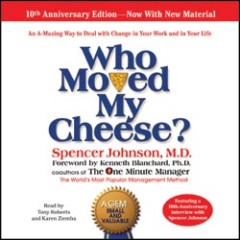Daily decisions, while necessary, often make us waste precious time. For this reason, today we give some advice to manage and simplify the decision-making process in everyday life. Take note!

Last update: July 18, 2021
Simplifying the decision-making process in everyday life is a winning choice. We often tend to invest our energies clumsily in everyday decisions of little importance; as if our resources were unlimited.
It may not appear that obvious, but this generates considerable stress. Maybe because of the awareness of taking time away from other more important aspects or because these same decisions turn into concerns that become shadows.
There are some rules and indications that allow you to manage this process in a simple way. The ideal is to pave the way for small problems to focus efforts on the important things. Let's see how to simplify the decision-making process in everyday life.
"Mystery besieges us, and it is precisely what we see and do every day that hides the greatest number of mysteries."
-Henri-Frédéric Amiel-
The three golden rules to simplify decision making in everyday life
These rules adapt to a large number of situations: from shopping at the supermarket to planning your time. They are extremely simple and rely on common sense. The three golden rules for simplifying daily decision making are as follows:
1. Identify and systematize recurring decisions
We often think about things to do several times. They range from the classic "how do I dress today?" to the "What do I eat for dinner?". There are many situations that perfectly fit this pattern.
The first step is to identify our recurring choices. So, take the time to systematize the most suitable solutions. Deciding at the beginning of the week what we will wear in the following days or what we will eat can save us time and energy.
2. Planning and anticipation
It is important, if not essential, to be clear about what we use most frequently in everyday life. Not only food, but also medicines, the tools most useful for us, etc. The ideal is to always have an escort to avoid wasting time in an emergency.
The same principle applies to the actions we take periodically, such as paying bills or controlling expenses. The ideal is to dedicate a specific time of day, week or month to this activity, instead of doing it in a casual and disorganized way.
3. The rule of food
nutrition is a primary physiological need, therefore common. Every day we are forced to meet our nutritional needs. And if we don't eat out, we have to personally take care of preparing the food; with a certain amount of time and energy.
The golden rule, in this case, is the following: the meal must not have a longer preparation time than what it will take to consume it. We speak on average about. But how to do it? If we set a limit of this type, we will gradually be led to adjust the times.
Simplifying the decision-making process in everyday life: a few more ideas
To successfully apply these three rules and obtain the desired results, we can integrate them with the following proposals:
- Rules are not meant to stiffen thought, but to guide action. For this reason, they must never be adopted dogmatically. If a rule is not functional at the specific time, it is best to leave it out.
- Rules improve the quality of decisions, but they don't make them perfect. Although these rules help us simplify the daily decision-making process, they don't always make us consume less energy. For example: after planning our clothing for the whole week, on Tuesday our boss suddenly informs us, that in the following days we will have a series of appointments where formal clothing is required.
- Rules work best when we apply them with some flexibility. That is, if they work, fine; otherwise, better review them. Each one, according to his own situation, is responsible for evaluating its effectiveness.
- They do not require willpower. If they are truly functional for our purposes, they should not require any effort on our part. If not, it's best to review them.
The purpose of these rules is to simplify our life through a better mental organization. In addition to this, they allow us to become aware of the enormous waste of time and energy used to solve the most insignificant problems of everyday life.


























